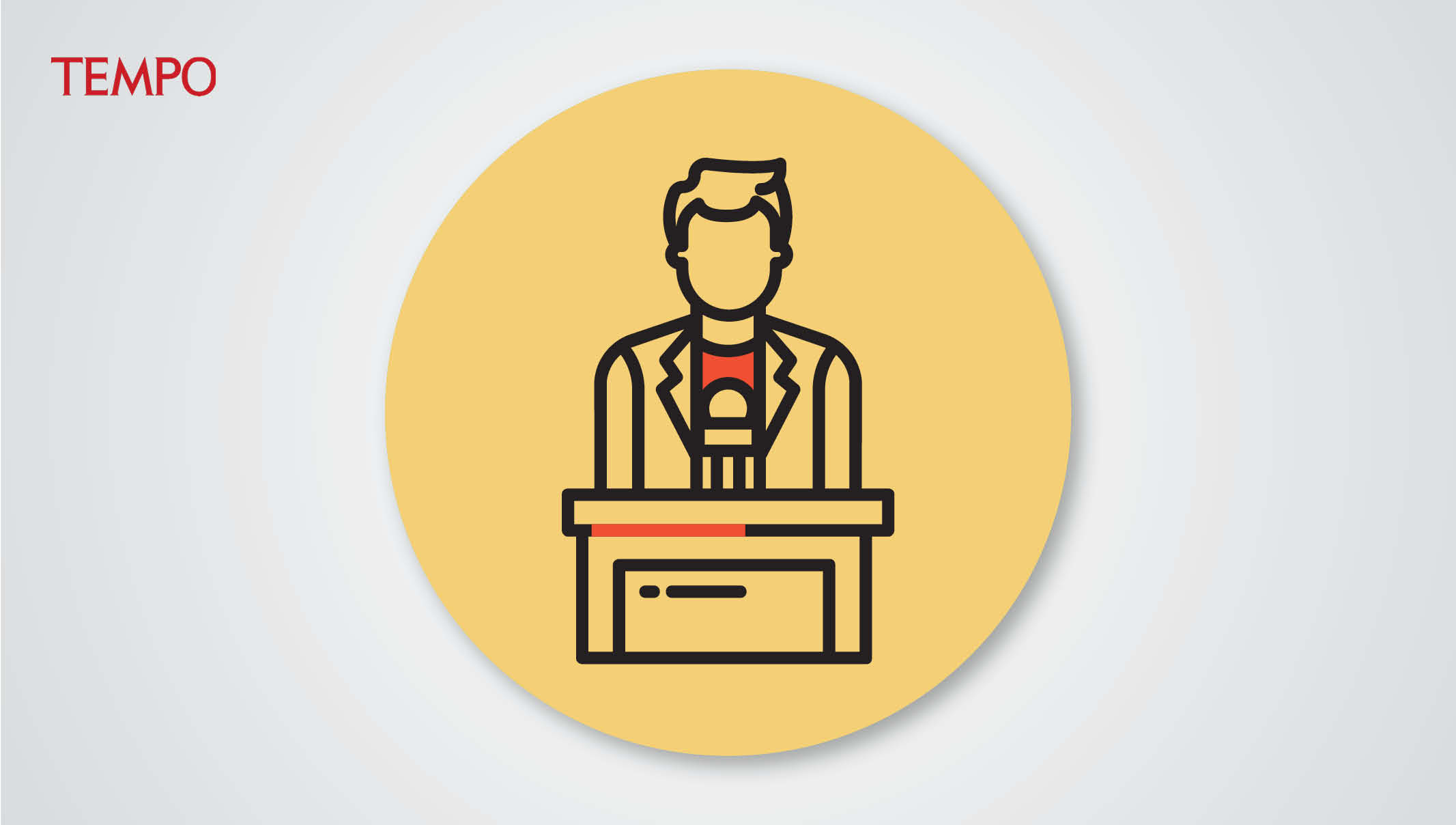Palace Appointees in the KPK Leaderships
The selection of the KPK leadership is being forced through before the end of the terms of the DPR and Jokowi. Watch out for Presidential Palace appointees.
Tempo
September 16, 2024

PRESIDENT Joko Widodo no longer has any moral legitimacy to decide on the incoming leadership of the Corruption Eradication Commission (KPK). Not only because his term ends in only a few weeks, but also because the power games he has played have led to major damage to the KPK.
During the Jokowi administration, the KPK has moved far away from its initial mandate as an independent anti-corruption body. Colluding with the House of Representatives (DPR) through revisions to the KPK Law, the Jokowi administration reduced the powers of the anti-graft agency and made it a part of the executive. The selection of the KPK leadership is now nothing more than a game to extend his hold on power.
Unfortunately, the aroma of government meddling is once again apparent in the selection of the prospective KPK leadership for the 2024 to 2029 period. From the selection committee stage, it seems probable that the hand of the government played a role in the approval of prospective KPK leaders who have very problematic track records and at the same time prevented the inclusion of candidates with strong backgrounds as anti-corruption activists.
This is indicated by the fact that the list of 20 prospective KPK leaders who passed the assessment test is dominated by law enforcement officers, such as police, prosecutors and judges. Ideally, the KPK, which was established as a correction to poor law enforcement, should be led by independent academics or legal experts with good reputations in the anti-corruption movement.
The selection committee will further narrow down the list and forward the names of 10 prospective KPK leaders to the President. The President will then send these 10 names to the DPR for fit-and-proper testing. What is suspicious is that there are signs that the KPK leadership selection process is being forced through, so it is complete before Jokowi steps down and before the end of the DPR session on October 1.
Forcing through the selection of the KPK leadership at the end of the terms of the President and the DPR will not only serve to further diminish people’s hopes about a restoration of the KPK’s independence but will also provide an opportunity for abuse of power. Jokowi supporters in the DPR could well choose KPK leaders who will protect the President and his family from any future legal consequences.
These suspicions are not unreasonable. At the end of Jokowi’s administration, names of his family members have begun to be spoken about in relation to alleged corruption. For example, the KPK received a report of alleged gratification in the form of the use of a private jet from a tycoon for Jokowi’s youngest son, Kaesang Pangarep, and his son-in-law, Bobby Afif Nasution. Moreover, Bobby’s name has even been mentioned in the corruption trial of former North Maluku Governor Abdul Ghani Kasuba.
It should be in the interest of Prabowo Subianto, the president-elect who will be inaugurated in October, to delay the selection of the KPK leadership. Through the members representing the Gerindra Party and its coalition partners in the DPR, Prabowo should delay the selection of prospective KPK leadership until after the 2024-2029 DPR members have been sworn in.
This way, Prabowo would not only have an opportunity to determine the replacements for the current KPK leadership, whose term of office will end on December 20. Prabowo would also not need to suffer the negative consequences of a poorly selected KPK leadership inherited from Jokowi.

